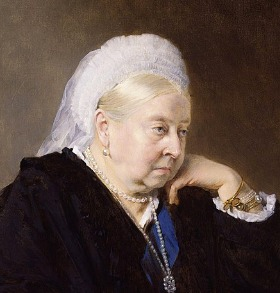The Queen is more popular in Romania than in any other country according to this survey.
The Queen's Platinum Jubilee matters, says John Winterson Richards. I quote him, with permission.
We are unlikely to see anything like it again. By this I mean not only that, at my present age, I am unlikely to live to see another Monarch reign for 70 years. I mean that we are unlikely to come together as a nation to celebrate anything anymore.
Britain is no longer a United Kingdom. We are deeply divided. It is not simply the normal difference of opinions - the sign of a healthy democracy. On the contrary, it seems we are not allowed to have opinions on a lot of subjects these days.
The depth of the problem is that we are now culturally divided. There is no longer a shared respect for our shared history, shared traditions, and shared values. It is questionable whether we can even be said to have shared values and traditions now, and although our shared history is a fact most people seem ignorant of it or are kept in ignorance of it.
What do the British people still have in common that can be said to define us? The only other widely observed public celebrations are vestigial religious holidays that are retained mainly as pretexts for irreligious conspicuous consumption.
Respect for the Queen is one of the few things that still unites us.
Her net favourability rating is, and has always been, far higher than that of any elected politician. It is high across the political spectrum, across the various nations of the British Isles, across divisions by age, among most ethnic groups, and through nearly all imaginable demographic categories. She also enjoys a higher rating abroad than most local politicians there - except in Argentina for some reason.
Ironically, the small but vocal minority who disapprove of her tend to think of themselves as communitarians and progressives, but the Queen is one of the few things that still unite us as a community, and is a living symbol of the changes of her long reign. Whether all of those changes count as progress may be debatable, but the very concept of progress requires past and present as well as future.
One of the functions of the Monarchy is that it represents continuity amid change.
The Queen also represents those shared values and traditions - not least because she has so obviously lived by then herself: she is a woman of faith and decency who maintains a formidable work ethic in her Nineties, a true role model.
Incidentally the fact that she is a woman makes her status as a role model even more important when nearly all the elected Heads of State with whom she has dealt in her 70 years have been men. Perhaps one of the reasons Britain can take pride in being the first major power to have an elected Head of Government too is that we were mentally prepared for the idea by the Queen.
How much of this is the Monarchy and how much is Elizabeth? Sadly we are likely to find out in the next few years - I literally pray it will still be more years than we expect or imagine. I fear that day. Another of the few ties that still bind us as one people will be gone. Then we will know what we have lost.
Let us not wait until then to appreciate what we have. Let us celebrate our Queen while she is still among us, and express our gratitude for and to her.
Thank God for the Queen - and thank you, Ma'am.
[There is a contrary view, that the Queen presided over appalling decline in her kingdom in so many ways, loss of belief in God, restrictions on individual freedom unprecedented even in the 17th century, loss of independence to the Americans and for almost fifty years to the Europeans, loss of decent standards of behaviour, violence and crime, loss of social cohesion, easy divorce, broken homes, building over the countryside, destruction of our Victorian cities in the 1960s and 1970s, abortion almost on demand, extreme high levels of immigration that are transforming the country, without doing anything to stop these things. I know that she has a lot of influence but I don't see how she could have done much to prevent those things.]





So far as I can tell, she has acted only twice in my lifetime to force changes of policy. In 1979, she bullied Margaret Thatcher to go back on her election promise not to hand Rhodesia over to a bunch of black Marxists. In 1987, she bullied Margaret Thatcher again to give in to calls for sanctions against South Africa.
ReplyDeleteAnd that was it. She is somewhere on record as having said that she regards herself more as Head of the Commonwealth than as Queen of England. Certainly, she has never paid any regard to the rights of her English subjects.
The Queen has not sustained our national identity. It is actually worse than this. By expressing that identity, she has allowed many people to overlook the structures of absolute and unaccountable power that have grown up during her reign. She has fronted a revolution to dispossess us of our country and of our rights within it.
Thoughts on the Diamond Jubilee:
Sixty Years a Rubber Stamp
By Sean Gabb
(29th May 2012)
https://libertarianism.uk/2022/06/02/elizabeth-ii-seventy-years-a-rubber-stamp/